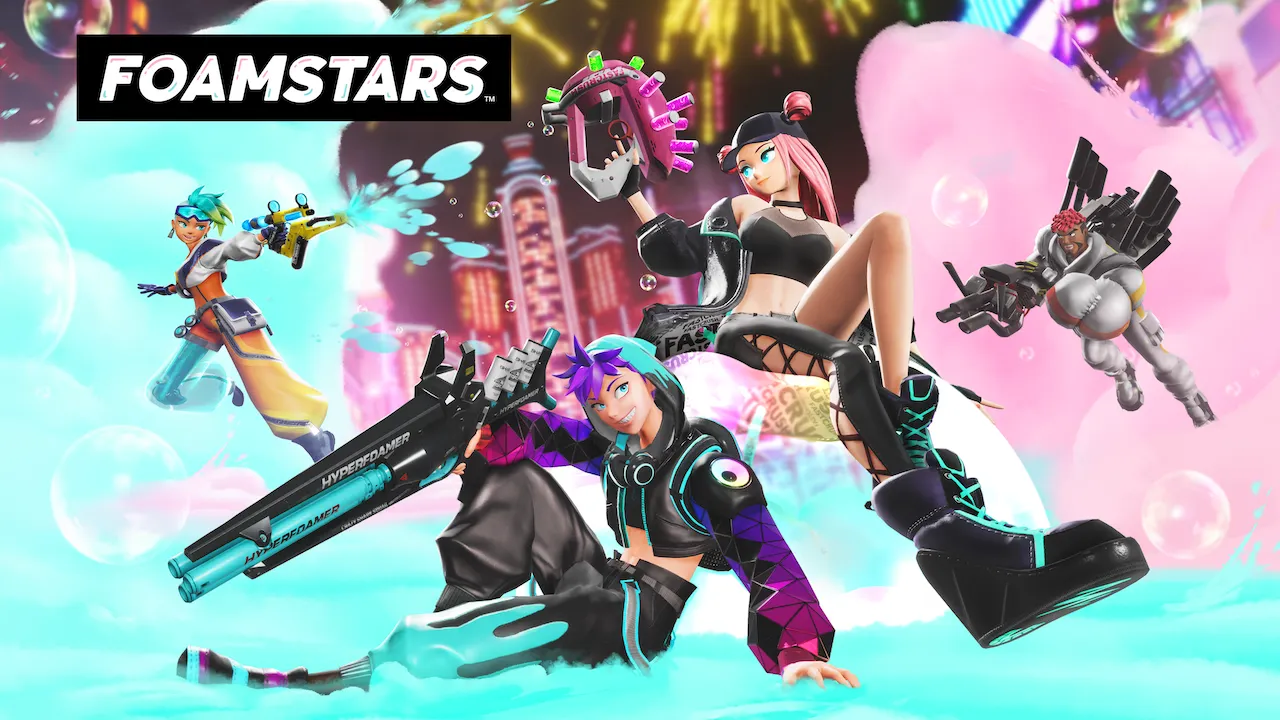After announcing earlier this month that the company plans an “aggressive” move into utilizing artificial intelligence tools, video game giant Square Enix confirmed Tuesday the use of AI-generated art in the upcoming game Foamstars.
According to a report by video game news outlet VGC, Square Enix used AI to create in-game album covers for the music featured in the Foamstars soundtrack.
“As developers, we’re always looking at new technologies to see how they can assist with game development,” a Square Enix representative told VGC. “In this instance, we experimented with Midjourney using simple prompts to produce abstract images.”
Foamstars is a 4v4 shooter-style game developed by Square Enix for the PlayStation 4 and 5. Players wield foam-firing guns as they take on other teams, using foam to build terrain on-the-fly to gain an advantage against foes.
It’s billed as a “party shooter” and has drawn comparisons to Nintendo’s Splatoon series in terms of look and feel. Subscribers to Sony’s PlayStation Plus membership program will be able to download and keep Foamstars between February 6 and March 4. After that, the game will be sold for $30 via the PlayStation Store.
While Square Enix did acknowledge the use of generative AI to create album art, the company emphasized that humans were behind everything else in the upcoming game.
Generative AI refers to artificial intelligence models that use prompts to create images, text, videos, and music. Platforms like Midjourney, ChatGPT, and Claude AI have become the flagship products of the emerging consumer-facing AI market.
“We loved what was created and used them as the final album covers players will see in the game,” Square Enix said. “Everything else was created entirely by our development team.”
Despite pushback from gamers, Square Enix and the video game industry at large have begun to adopt generative AI into the creative process. Other AAA game studios, including Blizzard Entertainment, Roblox, Ubisoft, and NCSoft, are leveraging artificial intelligence. In August, Call of Duty developer Activision said it would utilize artificial intelligence to moderate and clamp down on abusive language online. Square Enix has been especially vocal about it, however.
“We also intend to be aggressive in applying AI and other cutting-edge technologies to both our content development and our publishing functions,” Square Enix President Takashi Kiryu said in a letter in January.
According to Kiryu, AI will increase game development productivity and be applied to “marketing efforts.” In April, Square Enix's AI division showcased a demo of an AI-updated version of the 1983 text game, The Portopia Serial Murder Case.
Known for Final Fantasy and Kingdom Hearts, Square Enix also invested in Vienna-based AI startup Atlas, which converts text and images into 3D worlds using generative AI. In November, after Atlas came out of stealth, Square Enix, General Manager of Investment & Business Development Hideaki Uehara laid out the case for using generative AI in gaming.
"In recent years, the rising cost of game development has been challenging for the entire game industry, and gen AI is expected to help streamline the process in new and exciting ways,” Uehara said
Edited by Andrew Hayward

